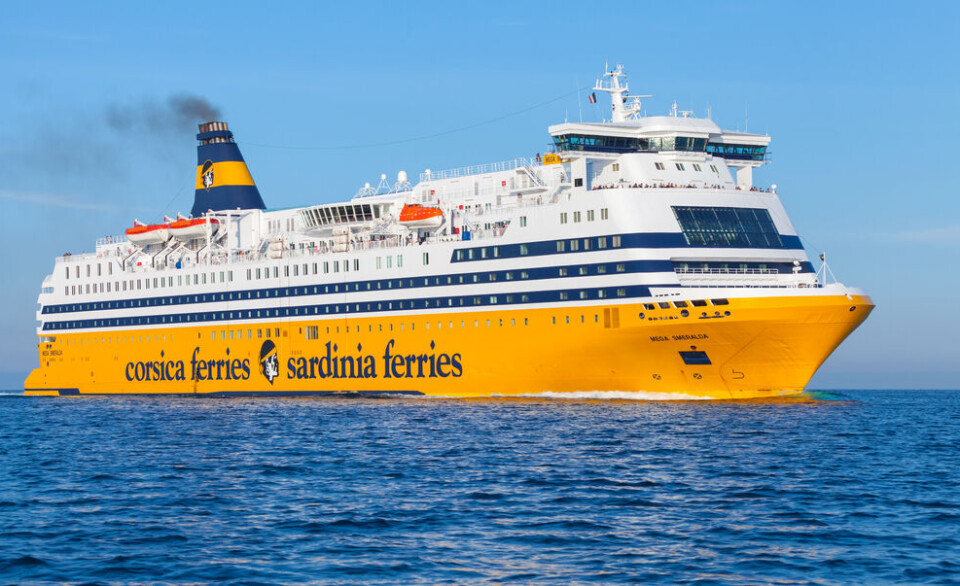British company Virgin Group's £700million fundraising drive for a “high frequency” train service between London, Paris and Brussels has been hit by a row over the use of Eurostar's train depots.
Virgin Group aims to become the first ever competitor to Eurostar by 2029.
However, Eurostar has been accused of trying to block Virgin’s plans before they have even got off the ground.
It has said Virgin trains will not have access to the rail depot at Temple Mills in east London dedicated to servicing and parking the trains used in the Channel Tunnel, which is rented by Eurostar.
British law says that the trains have to be serviced to UK standards on British soil, but Eurostar said the depot is full and if Virgin wants to use the tunnel, it will have to build its own London depot – adding hundreds of millions of pounds to the cost.
Evolyn, which said in 2023 it would buy 12 trains from French trainmaker Alstom to use on the London to Paris route, has also been told it will have to park and service its trains elsewhere in the UK
Virgin said it was “in discussions” with various train makers to see if it can buy enough train sets, able to run on British, French and German lines, to offer a European service.
Read more: Italy’s state railway announces plans to compete with Eurostar on France-UK route
FS Italiane Group is also emerging as a potential rival to Eurostar, with a projected 2029 start date.
A spokesperson for the company told The Connexion that it intends to run Trenitalia trains through the Chunnel, using their existing trains which they will adapt for use in the UK.
It has signed a memorandum of understanding with Spanish company Evolyn to potentially develop a partnership.
FS Italiane is looking only at the London-Paris route at the moment. The operator already runs services between Paris/Lyon and Milan, and has the concession for the UK’s west coast railways. Some €1billion has been set aside for investment in Europe, with the UK a substantial part of this.
A record year in crossings
Eurostar is now owned by the French rail company SNCF. It reported a record year in 2024, with 19.5 million passengers travelling on its trains, many of them to the Paris Olympics.
“This is further proof of the huge demand for international rail travel and the great potential of sustainable travel,” the company’s CEO Gwendoline Cazenave, said.
“Eurostar is targeting growth to 30 million passengers a year and investing in up to 50 new trains as a direct result, with the aim of delivering a unique and exceptional service long into the future.”
Read more: What is the best way to travel between London and Paris?
A 'green light for competition'
Rail regulator the Office of Road and Rail (ORR) commissioned an independent study to look at capacity and access to the depot used by Eurostar.
This found there was some extra space at the depot but only if Eurostar changed its maintenance procedures and there was investment in new infrastructure.
And it said the depot was not big enough for the announced plans of Eurostar, Virgin and Evolyn, raising the possibility of rationing the use of depot between operators.
Virgin hailed the report a “green light for competition”, while Eurostar said it is prepared to invest in new depot capacity, as long as other companies do too. FS Italiane Group also confirmed to The Connexion that it would be prepared to invest in Temple Mills if others did the same.
Separately, in a bid to encourage competition to Eurostar, ORR forced a lowering of the tolls paid by rail companies to use the lines between London and the Channel Tunnel.
Eurostar has long faced criticism for its high prices – in early April a one-way ticket for next day travel between Paris and London cost €218.
Campaigns for more stations
It has also been criticised for abandoning stops in Kent, at Ashford and Ebbsfleet since the 2020 Covid lockdowns.
There are presently two campaigns, Bring Back Euro Trains, run by local volunteers, and Bring Back Eurostar, run by local councils, trying to get Kent stops restored.
The Euro Trains group includes an online petition, launched in March 2023, which had 63,793 signatures in early April 2025.
Read more: Richard Branson aims to raise €800m to rival Eurostar in UK-France train link
The Bring Back Eurostar campaign has received the support of UK prime minister Sir Keir Starmer, who said in parliament that businesses in Kent had been “badly let down,” by the previous Conservative government which did not push for the stations to be re-opened.
Eurostar told The Connexion: “Our Kent stations will remain closed throughout 2025 and will be reviewed in 2026.
“We understand that this might be frustrating, and we want to stress that we are closely monitoring the situation, and, should there be any changes, we will provide an update.
“We recognise the importance of these stations to local communities, and we remain fully committed to the future of rail connectivity and continue to work transparently with local councils and stakeholders.
“For now our focus remains on our core stations and preparing for border changes under the EU’s new Entry-Exit system.”
Getlink and London St Pancras Highspeed, which runs St Pancras station and the lines between London and the Channel Tunnel, signed a “memorandum of understanding,” with each promising to promote the growth of high-speed rail between London and Europe.
Getlink also budgeted €50 million for the period 2025-2030 to support train operators wanting to use the Channel Tunnel.



























